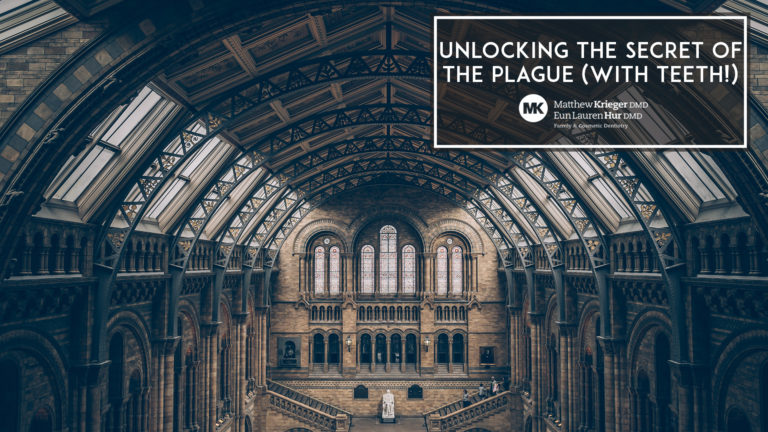When you wake up in the morning, does the dog run for cover the moment you open your mouth? Everybody has morning breath, but some people have it so bad that they’re afraid to admit there’s a problem. If that sounds like you, don’t let halitosis get you down — we’re here to help.
What Causes Morning Breath?
Although it’s important to brush before you go to bed, you may be surprised to learn that brushing and flossing alone can’t stop morning breath. That’s because in healthy patients, the aroma is created by a variety of bacteria that feed on the tiny particles of food that you missed.
They hang out in your mouth, producing heavy loads of volatile sulfur compounds like hydrogen sulfide, dimethyl sulfide and methyl mercaptan. The aroma created by these chemicals are often described as having “rotten egg smell.” Tasty.
The reason these bacteria proliferate at night is because your mouth dries out. At night you literally produce much less saliva, which normally helps keep those nasty bacteria at bay. When you first wake, your breath will probably be as bad as it can be. That’s the good news.
Minimizing Morning Breath
Since everyone has morning breath and there’s no way to completely avoid it, should you just give up and accept that your mouth will smell like a bog every morning for forever? Of course not! Take a look at this list of things that can help you beat morning breath back:
- Brush your teeth right before bed. No, it won’t get all the particles of food, but brushing will help minimize the available feast for those sulfur-belching beasts.
- Don’t forget your tongue. Keeping your tongue clean is also important for better morning breath. Even if you don’t own a tongue scraper, brushing it vigorously can dislodge all kinds of particles that microbial critters can’t resist.
- Use alcohol-free mouthwash. This is especially important after that nighttime tooth brushing. Alcohol-free mouthwash kills nasty bacteria without drying your mouth out. It can really help decimate the bacteria population so they have a harder time causing morning breath.
- Stop mouth breathing. This might mean trying a new sleeping position, like laying on your side or on your stomach, or you might need a decongestant to calm mild allergies. Either way, breathing through your mouth all night means you’re going to create a warm, dry environment that’s a perfect backdrop for a bacterial buffet.
- Salivate first thing. This may sound a little weird, but getting your saliva going in the morning, along with the above tips, is probably the best way to jumpstart your battle against morning breath. Saliva makes it hard for those bacteria to feed, both because it breaks down food particles and because it’s highly oxygenated and the most offensive offenders need an environment that’s oxygen-poor to thrive.
If morning breath is still a problem after you’ve tried all of these things, you should plan to visit your doctor for a checkup. You may be suffering from a number of conditions that encourage bad breath, from chronic sinus infections to tonsil stones. You might even be on a medication that affects the smell of your breath! Unfortunately, morning breath can be a pretty complicated puzzle sometimes.
Ask Your Dentist About Morning Breath
Even if your doctor says there’s no reason for your morning breath, make a point to stop in at your dentist’s office to ask them for their opinion. After all, we’re mouth specialists! With your doctor and your dentist both working on the morning breath issue, you’re sure to find a quick answer so you can start on the road to recovery.
Drs. Krieger and Hur are available all week, all you have to do is call us at 201-560-0606 or email us today to set up an appointment. While we’re at it, this might be a good time for a cleaning, too!
Say goodbye to bad breath! You’ll both look and smell amazing after a stop at our dental office.


